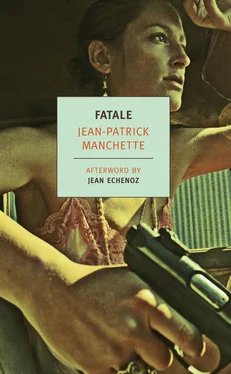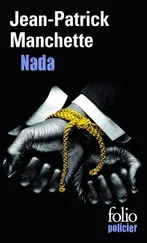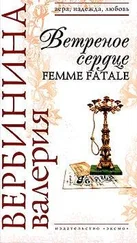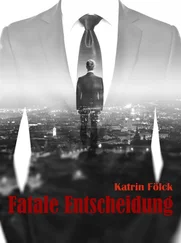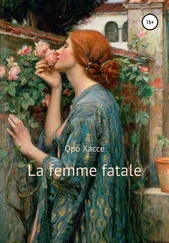Jean-Patrick Manchette - Fatale
Здесь есть возможность читать онлайн «Jean-Patrick Manchette - Fatale» весь текст электронной книги совершенно бесплатно (целиком полную версию без сокращений). В некоторых случаях можно слушать аудио, скачать через торрент в формате fb2 и присутствует краткое содержание. Год выпуска: 2011, ISBN: 2011, Издательство: New York Review Books, Жанр: Криминальный детектив, на английском языке. Описание произведения, (предисловие) а так же отзывы посетителей доступны на портале библиотеки ЛибКат.
- Название:Fatale
- Автор:
- Издательство:New York Review Books
- Жанр:
- Год:2011
- ISBN:978-1-59017-572-9
- Рейтинг книги:5 / 5. Голосов: 1
-
Избранное:Добавить в избранное
- Отзывы:
-
Ваша оценка:
- 100
- 1
- 2
- 3
- 4
- 5
Fatale: краткое содержание, описание и аннотация
Предлагаем к чтению аннотацию, описание, краткое содержание или предисловие (зависит от того, что написал сам автор книги «Fatale»). Если вы не нашли необходимую информацию о книге — напишите в комментариях, мы постараемся отыскать её.
Fatale — читать онлайн бесплатно полную книгу (весь текст) целиком
Ниже представлен текст книги, разбитый по страницам. Система сохранения места последней прочитанной страницы, позволяет с удобством читать онлайн бесплатно книгу «Fatale», без необходимости каждый раз заново искать на чём Вы остановились. Поставьте закладку, и сможете в любой момент перейти на страницу, на которой закончили чтение.
Интервал:
Закладка:
“Ah! Monseigneur!” cried Lorque suddenly.
Spreading his arms, he almost jostled Aimée in his haste to get to the entrance door, where a bishop had just appeared along with a young priest, both in business suits.
“He is a little bit nutty,” observed Mme Lorque, smiling and following her husband with her eyes. “Do you play bridge, Madame Joubert?”
Christiane Moutet broke in to explain that she had already asked that question. Everyone burst out laughing. Everyone chattered. Sonia Lorque was affable, blonde, excessively thin, excessively tanned. Her white knitted dress set off her tan and her well-maintained body. She was a good twenty-five years younger than Lorque. One sensed that she took very good care of herself. Physically, she was like an aging starlet seeking desperately to preserve her beauty capital. That being said, she seemed neither highly strung nor stupid. She and Christiane Moutet invited Aimée to play bridge one day soon at the Moutets. Aimée accepted, then asked where she might powder her nose. They told her. She left the reception room and went up the grand staircase to the second floor. She was on the qui vive.
On the second floor was a long bronze-green hallway punctuated by white-painted doorways and reproductions of plates from the Encyclopédie of Diderot et al. depicting dock and industrial operations. No sound emerged from behind the white doors. Nor could anything be heard from the ground floor, thanks to the very thick walls and floors.
Near the door to the toilets was a settee with bronze-green upholstery. Aimée sat on it for a moment’s pause. She needed a clear mind to process the information she had just acquired.
But at that instant Baron Jules emerged from the bathroom with his male member in his hand, crossed the corridor, and began to urinate against the wall just below an industrial print.
6
“Fuck! That feels good!” cried the baron once.
He had not seen Aimée, who was sitting motionless on the settee. The urine could be heard continuously battering the wallpaper. A dark puddle was forming on the bronze-green carpet between the two booted legs of this interloper. The man was tall, with a slight paunch, wearing jodhpurs and a brick-colored, roll-neck sweater that was too big for him and darned in several spots. He had a large pink head with a big nose and pale gray eyes and a tangled mass of graying platinum-blond hair. He must have been over fifty. He turned his head and saw Aimée.
“Hell’s bells! A lady!” he remarked.
He turned towards her, still buttoning his fly.
“Let me introduce myself,” he said. “Baron Jules. I must assure you that I am not in the habit of pissing on the floor in the presence of members of the fair sex. All hail beauty!” He shouted the last words. “Respect for the ladies!” He seemed to be calming down. “The fact is,” he went on in a worldly tone, “that I have been holding it in since this morning, when I was released from the psychiatric clinic. I was saving it for the carpet of that fat Lorque, you see what I mean?”
Aimée nodded, nonplussed but hardly bothered.
“You don’t see at all!” exclaimed Baron Jules. “You are a stranger to all this, and young! And very desirable, I might add, even though I prefer a little bit more flesh on the bone.”
“Is that so?” said Aimée.
The baron smiled at her.
“YOU SHOULD EAT YOUR SOUP!” he shouted as loudly as he could.
Because of the noise, or by chance, the white door of a bedroom about ten meters away opened. Dr. Sinistrat and Mme Lenverguez looked out wide-eyed. They were holding hands. The hair of the blonde woman with the pale eyes was all awry and the doctor’s tie was askew. The blonde’s mouth formed an O and her face crinkled with embarrassment when she saw Aimée and the baron in the passageway. The baron smiled and bore down on the couple.
“Aha! Aha!” he whooped. “Adulterous little piglets!”
“Come now,” said Sinistrat. “Come on, Baron, really…”
Mme Lenverguez emitted a mouselike squeak and fled for the stairs. Sinistrat stood his ground before the baron with arms bent and palms facing forward, as though seeking to halt, or merely perhaps to talk with him.
“Aha!” said the baron again with gleeful scorn. “She’s in a funk. She’s running away, the skinny bitch!”
“Baron Jules,” said Sinistrat, “I must tell you-”
The baron grabbed the doctor by the lapels and shook him in a rather pacific way.
“You must tell me what, you little shit?”
“I must tell you that I’m not going to be pushed around anymore.” Sinistrat’s voice was quavering. He was breathing hard. “I’m not signing any more certificates so you can…go on cures-”
“And in exchange for that, you think you can count on my silence?” The baron headed for the staircase. “You stupid humanist!” he cried. “You are laughable.” And the baron laughed a deliberate, forced laugh: “Ha! Ha! Ha! Ha!”
He disappeared. Mortified, Sinistrat sought to save face under Aimée’s dispassionate gaze.
“He is mad,” said the doctor. “He’s completely-” He broke off. Then: “I must count on your discretion too,” he added hastily.
Aimée shrugged, rose, and walked towards the stairs. Sinistrat followed in her footsteps, frantic. His curly hair flopped over his eyes and he tossed his head to get rid of it.
“That man is appalling,” he was saying. “He pops up everywhere without being invited, and-”
“A priest! A priest!” The baron’s voice thundered up from the ground floor.
“My God!” said Sinistrat.
With the doctor at her heels, Aimée quickly reached the bottom of the stairs. When she reentered the reception room, Baron Jules had just reached the bishop.
“Ugh!” he cried. “What an ugly priest he is!”
“My dear Baron, I beg you,” began the bishop. He raised a pudgy hand, shaking his head and smiling, and the baron delivered a straight right to his jaw.
The bishop went down. Exclamations and horrified cries went up. People thrust themselves between the bishop and the baron, who was kicking at his victim and shouting that the black beetle should be left to croak. On the floor, the bishop was drooling. A very big guy in a striped suit, with a red ribbon on his lapel, a black mustache, and white teeth, grabbed the baron’s arm and put him in a half-nelson.
“A cop! That’s all we need,” exclaimed the baron, stamping his heels onto the feet of the man with the mustache.
The bishop was helped to his feet and stood shaking his head in bewilderment. Lorque plonked himself in front of Baron Jules, jowls atremble with fury, and waved his Havana at him threateningly.
“You poor old fool,” said the factory owner. “Nobody dares say it to your face, but I’ll say it: You are not welcome here, you are not invited. You think you can do whatever you like because everyone in Bléville is afraid of you. Well, I’m not afraid of you.” Lorque glanced at the man with the mustache. “Commissioner, throw this man out!”
“My pleasure,” said the commissioner.
“I don’t give a fuck!” cried Baron Jules as he was hustled towards the door. “I’ll be back. I’ll be back to piss all over the place.” He broke into laughter. The commissioner and the servants threw him down the front steps. He rolled into the gutter. “I don’t give a fuck,” he cried once more. “You’re all done for.”
7
After the eviction of Baron Jules the cocktail party at Lorque’s house soon came to an end. Back in her studio apartment, after making herself a cup of tea and taking a bath, Aimée stood in front of the bathroom sink and, looking at her reflection in the mirror, spoke to herself:
Читать дальшеИнтервал:
Закладка:
Похожие книги на «Fatale»
Представляем Вашему вниманию похожие книги на «Fatale» списком для выбора. Мы отобрали схожую по названию и смыслу литературу в надежде предоставить читателям больше вариантов отыскать новые, интересные, ещё непрочитанные произведения.
Обсуждение, отзывы о книге «Fatale» и просто собственные мнения читателей. Оставьте ваши комментарии, напишите, что Вы думаете о произведении, его смысле или главных героях. Укажите что конкретно понравилось, а что нет, и почему Вы так считаете.
